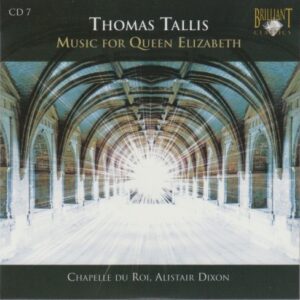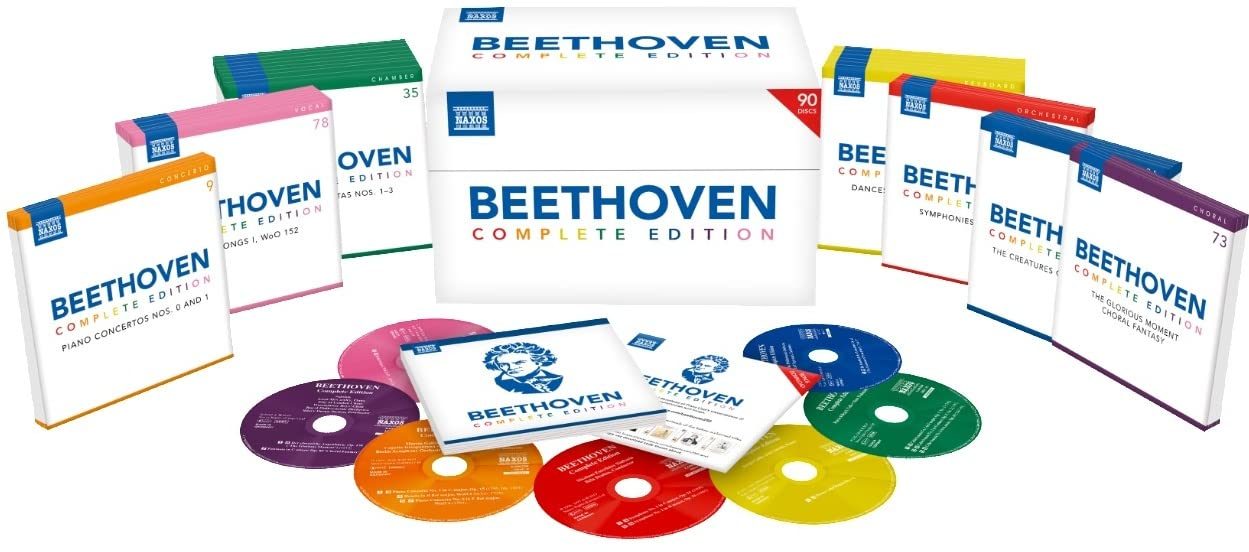 We woke up to snow on our cars this morning, which – under normal circumstances – wouldn’t have been a surprise. But the winter we’ve been having, with temperatures in the 50s and upper 60s, it was a shock.
We woke up to snow on our cars this morning, which – under normal circumstances – wouldn’t have been a surprise. But the winter we’ve been having, with temperatures in the 50s and upper 60s, it was a shock.
But, the troopers that we are, we just brushed off our car and hightailed it to a local Panera Restaurant for Light Roast coffee (with cinnamon in it) and a breakfast sandwich.
I had company this morning. My wife, long-suffering as ever when it comes to my music projects, joined me.
Today, I listened to Thomas Tallis, CD 7, which is titled “Music For Queen Elizabeth.”
 As always, I had to know why this CD was given that title.
As always, I had to know why this CD was given that title.
So I turned to the CD-ROM that contained the texts, lyrics, and liner notes and discovered this:
On CD 7 of The Complete Works of Thomas Tallis we meet Thomas Tallis as the composer of Latin-texted motets in the reign of Elizabeth I.
Elizabeth I’s reign (1558-1603) was a time of increasing stability in political, artistic and religious life. It was also a time when—despite the fear of Catholic invasion, especially from Spain—England enjoyed growing cultural exchange with continental Europe. In the arts, Elizabeth’s reign was a golden age. England’s rich, but essentially insular and conservative, pre-Reformation heritage was infused with increasing continental influence, and in both literature and music we see the rise of humanism shaping new ideas and forms. The introduction of printing in England meant that English culture would be more widely disseminated and exported.
Like many of her subjects, Elizabeth I must have had mixed feelings about England’s reformed church and the music that accompanied the new liturgy. (Tallis’s music for the Anglican liturgy can be heard on CD 6 in this series.) Elizabeth had been brought up as a Catholic by her father, Henry VIII and at times she must surely have hankered after the lost colour and richness of the Sarum Use. Indeed, at the outset of her reign she allowed considerable freedom of practice and belief. Though she was firmly in favour of a vernacular liturgy for the general population, she was happy to license a Latin version of her 1559 Book of Common Prayer, for use in college and university chapels where Latin was understood. In her own chapels she certainly liked a more lavish ceremonial (including choral music) than some of her clergy could stomach.
Elizabeth was the fourth monarch to sit on the throne in Tallis’s lifetime. The composer, now in his sixth decade of life, must have regarded the new queen’s protestant settlement as another provisional stage in a wearying succession of political and institutional reforms, rather than the start of the status quo we now perceive. Whatever his personal convictions—and the slight evidence we have suggests his sympathies lay with the Catholics—the ever-adaptable Tallis met the challenges of a new liturgy, its new styles and genres, with the imaginative force of a man half his age.
– Written by Alistair Dixon and David Allinson, November 2003
As with all liner notes from Brilliant Classics, this background on the life of Thomas Tallis is essential, highly readable, and historically valuable.
I’m no less fatigued by songs that all sound very much the same. But at least the songs are of a fascinating quality, with soaring vocals (the back of the CD sleeve lists dozens of singers from the two choirs who created this album), and a spirituality that’s palpable.
Just the Facts
CD 7 of this 10-CD box set consists of 16 tracks that clock in at 62:45.
As with the previous six CDs, the music on this one was performed by Chapelle du Roi, conducted by Alistair Dixon.
It was recorded on November 13-15, 2000, at St. Jude’s Hampstead.
It is marked DDD, which means it is an all-digital recording. (Digitally recorded, Digitally mixed, and Digitally mastered.) Purists, those folks who think vinyl sounds better than CDs (they’re wrong) would probably look askance at this recording. But, to my ears, this is the best way to record music to precisely capture every note. But what do I know?
Just the Feelings
Recording quality: 5
Overall musicianship/vocals: 5
CD liner notes: 5
How does this make me feel: 4
Because of the caliber of the two choirs, this CD doesn’t quite fatigue me as much as previous CDs in the Thomas Tallis box set. The beauty of the soprano voices sound like angels on high.
I can’t really say I have a favorite recording. Each track sounds like the previous one – which, don’t get me wrong, doesn’t mean they’re bad. It just means this CD is one hour of music that nearly sounds like the same song.
The musicianship is of the highest caliber, as is the recording.
Once again, Brilliant Classics offers the very finest ancient music.
